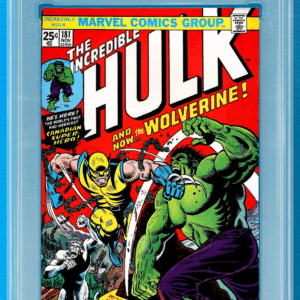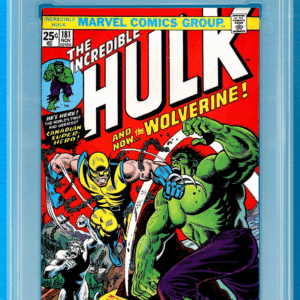Imagine stepping into the world of sports collectibles with the financial gusto to drop a casual $3.7 million on a piece of memorabilia. That’s precisely what Jack Arshawsky did when he purchased a coveted 1979-80 O-Pee-Chee Hockey card case at a Heritage Auctions event. However, the thrill of acquiring such a treasure has taken a surprising turn.
Jack Arshawsky, a real estate agent hailing from Vaughan, Ontario, initially seemed like the perfect caretaker for this treasure trove of hockey nostalgia. The case, sealed and guarded like a royal relic, contains no less than 16 boxes, each box brimming with 48 packs of potentially mint-condition cards, including the holy grail of hockey cards: the Wayne Gretzky rookie card. The excitement around such items is palpable, as finding a single pristine Gretzky rookie can set a collector’s heart racing, let alone stumbling upon 25 of them, as speculated here.
However, the plot thickened after the auction hammer fell. Having paid a substantial $3 million of the staggering $3.7 million total, Arshawsky’s intentions took a surprising detour. It emerged that his victory at the auction, while sweet, was tinged with the bitter taste of an underbidder’s disappointment—a devoted collector whose passion for the cards arguably surpassed his own. This realization sparked a magnanimous but complex quest: to pass the baton to someone whose heart beat more fervently for these relics of icy battles past.
Despite his grand intentions, Jack’s journey to find the perfect successor has been anything but smooth. The quest saw him reaching out to celebrities and magnates like Edmonton Oilers owner Daryl Katz, global music sensation Drake, and none other than the hockey legend himself, Wayne Gretzky. Yet, none of these high-profile pitches have resulted in a sale.
So, the case sits, somewhat forlornly, in the secure confines of Heritage’s Texas vault, waiting for a resolution. Heritage Auctions, quite accustomed to the ebb and flow of post-auction arrangements, points out that while it’s not unusual for items to remain in limbo due to payment schedules, they usually anticipate more rapid resolutions to ensure proceeds are passed on to consignors swiftly.
Adding another layer to this unfolding drama is Hy Bergel, a Toronto-based lawyer enlisted by Arshawsky. Bergel’s task? To aid in the search for a buyer who not only has the means but also the enthusiasm to match the sanctity of this purchase. Jack’s staunch refusal to profit from a potential resale emphasizes his desire for the collection to land in the hands of someone who truly understands and values its historical and emotional worth.
If finding a buyer proves too challenging, Arshawsky has floated a rather extraordinary backup plan—gifting the entire case to a childhood friend. This gesture would underscore a poignant narrative turn, taking the collection from an object of financial speculation to a heartfelt symbol of lifelong friendships and shared passions.
This saga serves as a reminder of the unpredictable and often emotional journey that can accompany the world of high-stakes collectibles. Each twist and turn in the story reflects the values and visions of those who partake in this niche market—a market driven as much by nostalgia and sentiment as by dollars and cents. The eventual fate of this $3.7 million hockey card case may yet prove to be as storied and spectacular as the on-ice exploits of the legendary players it potentially enshrines.






